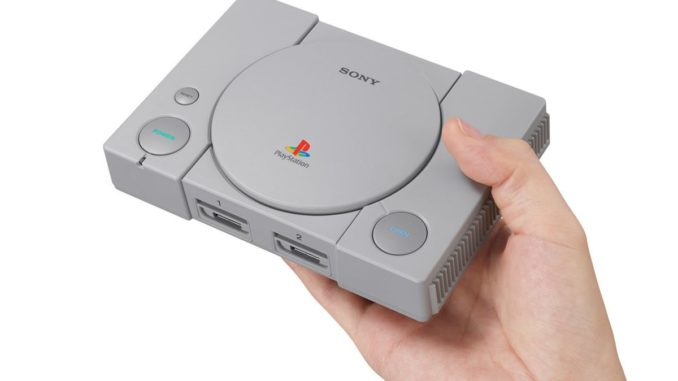
What Happened To The N64 Classic Mini This Holiday Season?
It is hard to think that the first entry in Nintendo’s retro line of consoles, the NES Classic, came out over two years ago to much praise. Fans had lined up in front of major retailers around the country to catch a glimpse at their favorite 8-bit childhood memory. Nintendo then followed its nostalgia run with the SNES classic nearly a year later. With 20 classic games embedded in its hardware, the system touched upon a variety of genres ranging from RPG’s to Platformers, Nintendo’s second foray into the retro market symbolizes a company that is very much in tone with its devoted fanbase. Consumers are treated to a monolithic foray into a plethora of franchises that helped give the company the edge of its competitors during the glory days of the 16-bit console wars. Final Fantasy 3, Secret of Mana, and Donkey Kong Country are the pinnacle of everything that made the Super Nintendo one of the greatest systems ever produced. A platform that excelled in genre-defining titles, the Snes classic hit the ground running back in 2017 and yet with all its success in the retro mini console market, Nintendo was quiet this holiday season. Strange truly, when one considers how great the Nintendo 64’s fanbase is when compared to its predecessors. December 2018 could have been the apex of Nintendo’s past colliding with its present. The summation of the Switch and everything that came before it crystalized in the Nintendo 64 Classic Mini’s unearthing onto consumers who devour anything Mario and Zelda related. But yet the house that these iconic mascots built remained silent in 2018.
The PS Classic’s Disaster Could Have Solidified Nintendo’s Dominance
Everyone will agree that Sony’s cash grab this year is an unmitigated disaster. The PS Classic by far is the underbelly of the retro market. Nothing even remotely appealing about a full-priced system that harbors subpar games is deserving of adulation even if the hardware mimics a company that once strived for greatness. The NES and Snes Classics are light years ahead of Sony’s pitiful excuse of a retro system. With this in mind, it seems the climate is ripe for another Nintendo fan service blessing. The Nintendo 64 might not have the extensive library that its contemporaries did back in the 1990s, but the games it did produce were top quality when it came to first-party software. With Sony’s misstep, Nintendo has a clear-cut opportunity to dominate the retro mini market, much like its handhelds had done over the past two decades. Unfortunately, Nintendo did not take its chance to rub out its competitors with a single swoop. Rather, consumers are left wondering for another year what Super Mario 64 would like in high definition. If the Switch has taught us anything with its success, is that powerful hardware does not necessarily translate into sales figures. What decides a console’s lifespan are the library of games it produces on its platform. The Nintendo 64 knows this truth all too well. Originally released in 1996, Nintendo’s third generational hardware harnessed double the power its opposition could produce and yet the PS1 stole all the third party support. Whether 32 bits or 64 bits, Nintendo at the time simply could not compete with Sony’s great lineup of Role Playing games that came to popularity in the West during that time. Ironic, since the PS classic offers up only two true JRPG’s in hardware. With all this in mind, an N64 classic mini is brimming with support just because of its limited, yet top notch, selection of first-party titles. No other company has the character recognition on the magnitude of Nintendo. Anything remotely related to such blockbuster franchises as Mario Kart and Super Smash Brothers would help the system sell in the millions. The original
Fan Theories and Expectations
With Nintendo devotees left to guess what pack in games would be included in an N64 Classic system, many industry outsiders have their theories as to why the fan favorite throwback is suspiciously absent this year. Some have speculated that the N64’s lineup will be presented in 2019 as a virtual shop purchase in DLC form. But this would be erroneous, to say the least. Nintendo knows full well of the potential of re-releasing its 64 console’s hardware on the modern generation. The Gamecube is one point of reference. With the new Smash Bros mopping up sales figures this holiday season, Nintendo brilliantly decided to reproduce its much-lauded Gamecube controllers for use on its new software. What is old is truly made new again. Fan identification goes a long way when helping a company compete in the modern market and seeing an N64 controller being carried in major retailers would send shivers up any gamer’s spine regardless of company allegiance. In essence, it seems highly unlikely the N64’s library would be available for download only on the Switch’s virtual shop. Â
In regards to other theories that the N64’s library would be too costly to license again is nonsense. If anything, what made the N64 so special is the console’s reliance on in-house development which gave rise to staple franchises like Mario Party and Smash Bros. Due to its reliance on cartridges instead of the then-novel disc-based technology, Nintendo lost much of its third-party support for its 64-bit system. Thus, with the exception of a handful of software, an N64 Classic would cost next to nothing to license out for IP’s since the Nintendo company itself made more than half of them themselves. So with all this in mind, it is more than strange to speculate on Nintendo’s notable absence this Christmas season. All the stars were in line for the N64 to cater to its more than major consumer base and yet we are all left to wonder why? Perhaps the PS Classic’s abysmal cash grab symbolizes the end of this generation’s retro craze. More than likely this is not the case. Rather, Sony’s disgrace is just another feather in the cap of Nintendo’s large assortment of achievements that stem way before Sony’s initiation into the video game industry.
The Future of the Retro Market
In the end, the retro market will always exist in some way, shape, or form. As gamers who remember the 1980s get older, their interest in the titles that defined their childhood grows with every decade. An N64 classic would have been a nice touch this year, but perhaps Nintendo wanted to wait out Sony’s massive blunder until fans realized the significance of a company that reawakened an entire industry during its dark ages. Much like the Renaissance symbolized a rebirth of artistic achievements in history, so did Nintendo after the video game crash of 1983. What is so amazing about the Nintendo company is its insistence on putting character and story before hardware. The Legend of Zelda: The Ocarina of Time will never fade into obscurity because great storytelling will always outlast flashy visuals and over the top action sequences. Think of the reason as to why the PS Classic bombed this year. Not because Sony did not have the library to back up its stake in the retro trend but because it failed to see what made its first system such an iconic piece of gaming history, ie, its extensive RPG library. Nintendo will never have that problem simply because it made almost entirely its own software without relying on companies like Capcom and Konami to do it for them. Link’s adventures will remain timeless regardless of generation or platform. This gets to the crux of why an N64 classic does not have to necessarily come out any time soon. Even with a long gestation period, Nintendo will always remain the company of mascots that never age nor tire in the minds of gamers. Sony and Sega may release as many vintage hardware as they like but without substance to back up the content, then all we are left with is nostalgia for nostalgia’s sake. A fact that Nintendo will never have to worry about.Â


Leave a Reply